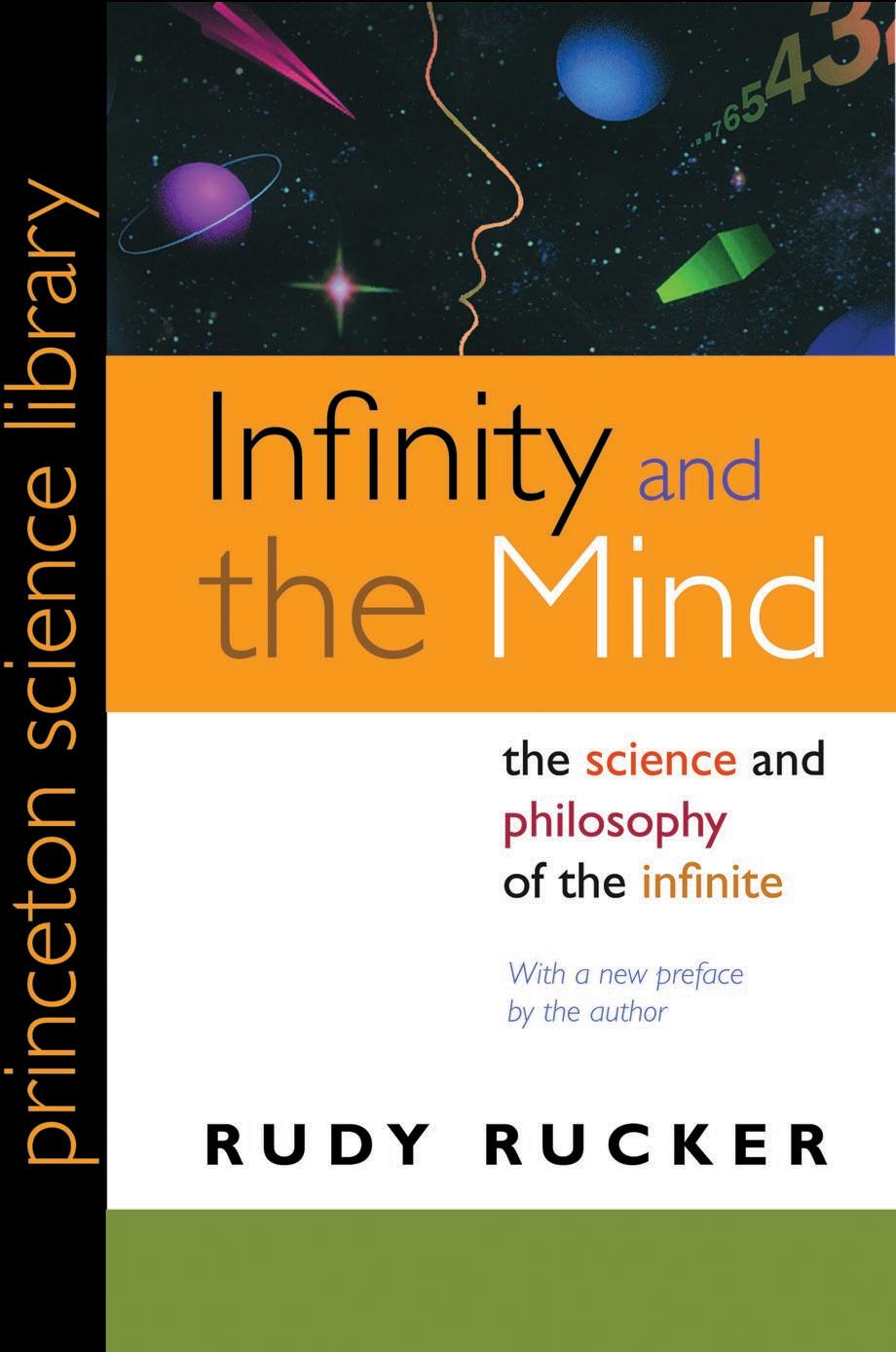Infinity and the Mind by Rucker Rudy

Author:Rucker, Rudy
Language: eng
Format: epub, pdf
Publisher: Princeton University Press
Published: 2013-05-27T16:00:00+00:00
THE LIAR PARADOX AND THE NON-MECHANIZABILITY OF MATHEMATICS
Let us now return to the idea of a theorem-listing machine, a finitely described device that prints out an endless list of statements. Obviously, the best possible theorem-listing machine would manage to print out all and only the true statements expressible in, let us say, the English language plus the customary printers’ symbols. Such a Universal Truth Machine would be a fine thing indeed. Once we had devised its finite procedures, WELL, AXIOM, and RULE, we could set it to running and simply lean back and watch the printout. If you were curious about the truth of some well-formed statement S, you would only have to sit there and wait until either S, or the negation of S, was printed out.
Before going any further, we should be a bit more precise about what sorts of string S will count as (well-formed) statements for which one can expect an unequivocal true or false decision.
A first point is that we do not necessarily expect a statement to consist of a single grammatical unit. That is, a statement can consist of several sentences, a whole paragraph, a book, or even a large number of books. We desire only that the entire welter of symbols embody a single assertion that is in fact either true or false. We will, however, not allow infinitely long strings of symbols as statements, for a statement should be, at least in principle, unambiguously and finitely communicable.
A second point is that a string such as “x is smaller than y” is not, in itself, a statement. For without being told what x and y are, no one could ever say that this string expressed either a truth or a falsehood. So a statement should not include any undefined terms or relations.
But now we have a rather nasty problem. What about the phrase “is smaller than” in the example above? Must the meaning of that too be explained before we have a definite statement? But if every term and relation, every noun and verb, must be explained, then we seem to face a real mess. A full statement will take on the form of an initial assertion, followed by definitions of the words used in the first definitions, followed by definitions of the words used in the second definitions, and so on.
Well … why not? Such are the joys of abstract speculation! By way of preventing unnecessary regresses, we specify that within any expanded statement, no word’s definition need be repeated. Since there are only finitely many words and word-creation schemata in English, the process should normally terminate. There may, however, be some cases in which the full expansion of a statement becomes infinite, and in such a case we will just have to write the statement off as non-well-formed, not really a statement.
Someone might object that a fully expanded statement will consist of circular sequences of definitions and will thus be useless. To this there are two responses. First, any circular definition more complicated than “x is x” does convey some information.
Download
This site does not store any files on its server. We only index and link to content provided by other sites. Please contact the content providers to delete copyright contents if any and email us, we'll remove relevant links or contents immediately.
| Algebra | Calculus |
| Combinatorics | Discrete Mathematics |
| Finite Mathematics | Fractals |
| Functional Analysis | Group Theory |
| Logic | Number Theory |
| Set Theory |
Modelling of Convective Heat and Mass Transfer in Rotating Flows by Igor V. Shevchuk(6424)
Weapons of Math Destruction by Cathy O'Neil(6254)
Factfulness: Ten Reasons We're Wrong About the World – and Why Things Are Better Than You Think by Hans Rosling(4727)
A Mind For Numbers: How to Excel at Math and Science (Even If You Flunked Algebra) by Barbara Oakley(3290)
Descartes' Error by Antonio Damasio(3264)
Factfulness_Ten Reasons We're Wrong About the World_and Why Things Are Better Than You Think by Hans Rosling(3228)
TCP IP by Todd Lammle(3174)
Fooled by Randomness: The Hidden Role of Chance in Life and in the Markets by Nassim Nicholas Taleb(3101)
Applied Predictive Modeling by Max Kuhn & Kjell Johnson(3058)
The Tyranny of Metrics by Jerry Z. Muller(3055)
The Book of Numbers by Peter Bentley(2959)
The Great Unknown by Marcus du Sautoy(2683)
Once Upon an Algorithm by Martin Erwig(2640)
Easy Algebra Step-by-Step by Sandra Luna McCune(2623)
Lady Luck by Kristen Ashley(2572)
Police Exams Prep 2018-2019 by Kaplan Test Prep(2535)
Practical Guide To Principal Component Methods in R (Multivariate Analysis Book 2) by Alboukadel Kassambara(2533)
All Things Reconsidered by Bill Thompson III(2385)
Linear Time-Invariant Systems, Behaviors and Modules by Ulrich Oberst & Martin Scheicher & Ingrid Scheicher(2359)
